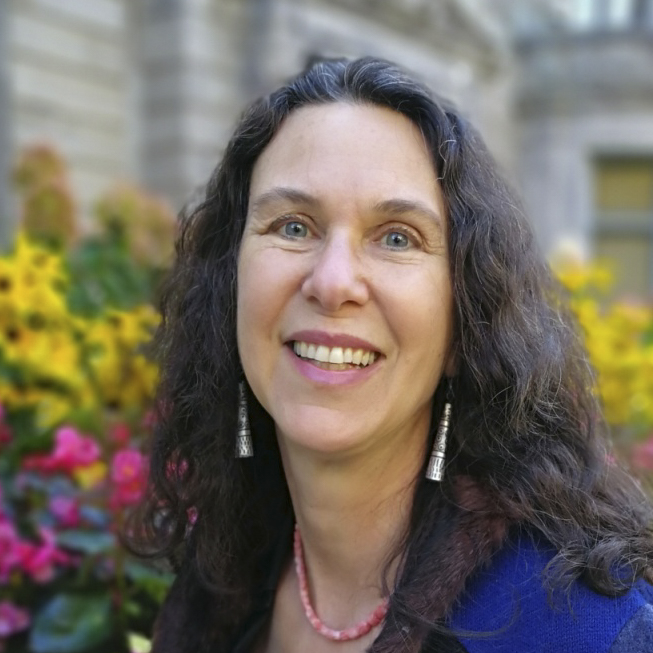When the tragedy occurred at Polytechnique, Nathalie was a master’s student in Civil Engineering at Université de Sherbrooke. She had been actively involved in a student committee that organised activities to encourage the participation of women in engineering. Four days earlier, she had given birth to her daughter, her second child. This made her feel especially touched by the event, feeling empathy with her fellow students in Montreal but also with the parents of the victims.
After she finished her master’s thesis, she began a Ph.D. in remote sensing, also at Université de Sherbrooke. In 1992, the family of four left for Costa Rica where Nathalie carried out the field work for her dissertation. This first international experience led to other opportunities, taking the family to Colombia, France and Senegal. Nathalie worked for ten years as a senior research fellow at the International Centre for Tropical Agriculture (CIAT). She studied land use planning processes as opportunities to use geographical information systems (GIS) and remote sensing images, but also as a mechanism to link agricultural research more effectively with development. She then worked for over five years as a program officer in the Dakar office of the International Development Research Centre (IDRC) within the Climate Change Adaptation in Africa (CCAA) program.
In 2012, she moved back to her birth town, Montreal, to be able to accompany her aging parents. She went back to school through a part time postdoctoral internship in regional development at Université du Québec à Rimouski from 2013 to 2015 and has worked as a consultant. Since 2017, she is based at Ouranos in Montreal and has worked on a number of projects as a consultant or as an employee of partners of the consortium. At present, she mainly works as a research professional with Université Laval on a project aiming to understand the determinants of effective policy instruments for adaptation to climate change. She works with a professor of the education faculty who applies behavioural science to describe climate change adaptation. In the last years, she has been able to schedule her work in a way that allowed her to usher her parents in their last moments as well as to welcome her grandchildren.
Her main contribution to society is to have facilitated processes in which people use technologies (remote sensing images, GIS, climate projections), as well as municipal planning and climate adaptation programs, to develop collective efforts in which they also pursue their individual aspirations.
Her main contribution to the profession is possibly to provide more intuitive approaches to address climate-related risks in such a way that engineering and management responses are included within the broader contexts of municipal and regional development. But she also provides an example of engineering leading to exciting careers that men and women can combine with playing important roles within their families.
Nominated by: Université de sherbrooke


